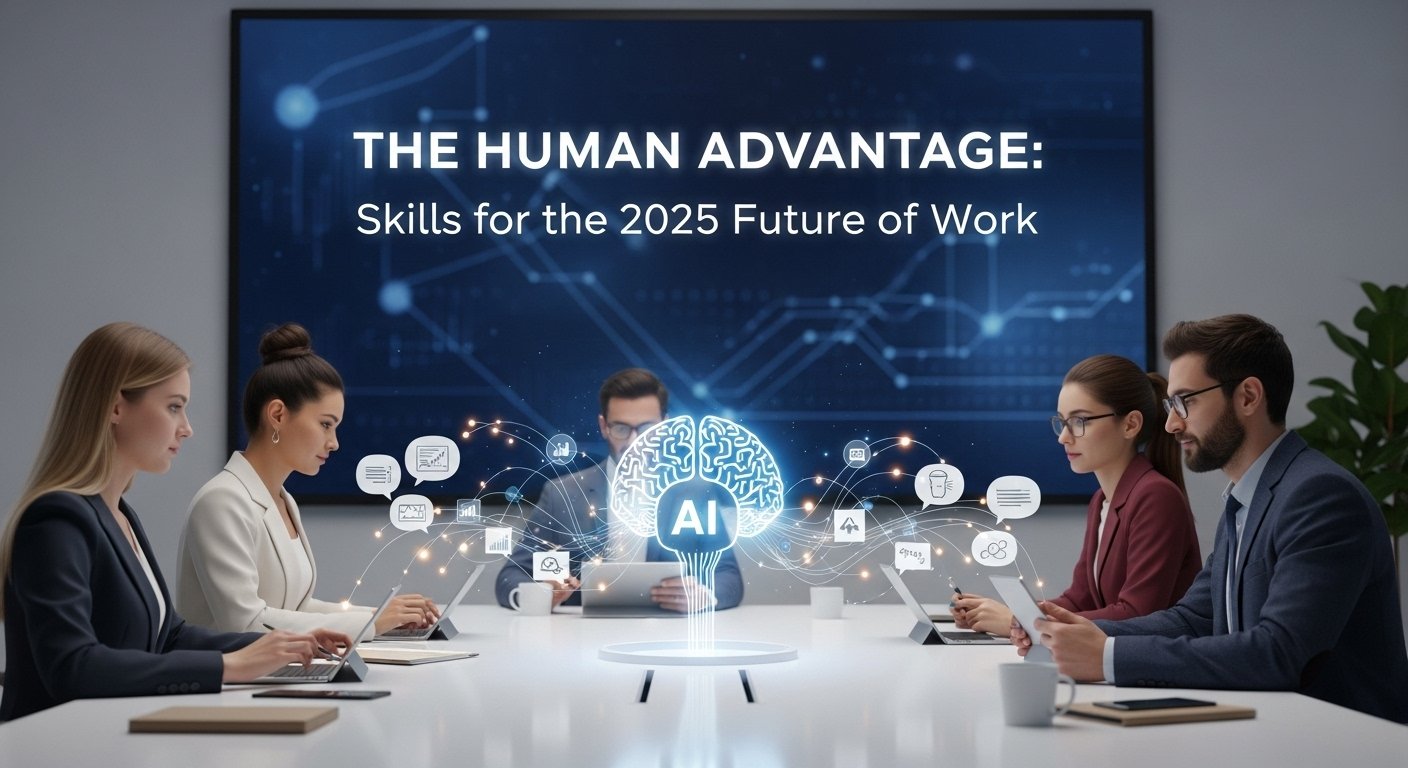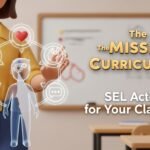The Human Advantage: Unlocking the Most In-Demand Skills for the 2025 Future of Work
Let me tell you about a recent graduate I know, we’ll call her Maya. Armed with a stellar GPA and a great degree, she dove into the 2025 job market, confident and ready. But as she scrolled through job descriptions, a sense of unease began to creep in. The listings for her dream roles were filled with phrases her textbooks never mentioned: “demonstrated cognitive flexibility,” “experience collaborating with generative AI,” “advanced cross-functional communication skills.” It quickly became clear that the world had changed. The future of work we’d been talking about for years wasn’t some far-off concept anymore; it was here.
The AI revolution that swept through our industries in 2023 and 2024 didn’t lead to the mass unemployment many feared. Instead, it triggered a “Great Reshuffle”—a fundamental shift in the skills that employers value most. Routine, predictable tasks have been largely handed over to our incredibly capable AI assistants. So, what’s left for us humans? Everything else. The messy, the creative, the strategic, and the deeply human. For US students and recent graduates, navigating this new landscape means understanding that your most valuable assets are the skills that can’t be automated. This is your guide to the real, in-demand skills employers are hiring for right now, in the future of work that is today.
The Great Reshuffle: Welcome to the 2025 Workplace
The central theme of the 2025 workplace is human-AI collaboration. It’s no longer about whether you use technology, but how fluently you can partner with it to solve complex problems and create new value. Reports from institutions like the World Economic Forum and McKinsey have been tracking this shift, and the consensus is clear: the new value proposition is not what you know (AI can know more), but how you think.
The future of work is less about fixed roles and more about dynamic, project-based teams. Companies are looking for agile thinkers who can move between different functions, learn new tools on the fly, and bring a uniquely human perspective to the table. Your degree is still important—it proves you can learn and commit—but it’s just the entry ticket. The skills you demonstrate on top of that degree are what will get you hired and promoted.
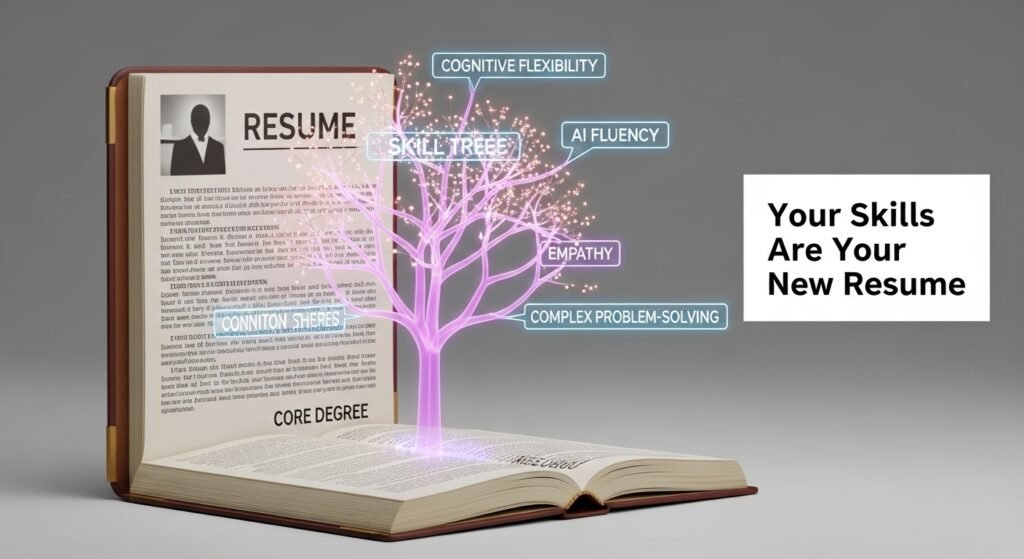
The Old Resume vs. The 2025 Skills Portfolio
The way we showcase our abilities has had to evolve. A traditional resume is no longer enough to capture the dynamic skills needed for the modern workplace.
| The Resume (Circa 2020) | The Skills Portfolio (Circa 2025) |
| Focus: Past job titles and responsibilities. | Focus: Demonstrated skills and project outcomes. |
| Key Metrics: GPA, years of experience, name of the institution. | Key Metrics: Links to a portfolio of work, evidence of cross-functional collaboration. |
| Tech Skills: Listed specific software (e.g., “Proficient in Microsoft Excel”). | Tech Skills: Demonstrated “AI Fluency” (e.g., “Used generative AI to brainstorm and research X project”). |
| “Soft Skills”: Listed as buzzwords (e.g., “Team player,” “Good communicator”). | “Human Skills”: Proven through specific examples (e.g., “Led a diverse team of 5 to successfully launch Y initiative”). |
Export to Sheets
This shift means you need to start thinking of yourself not just as a student with a certain major, but as a professional with a portfolio of transferable skills.
4 Characteristics of Warm Demander Teachers | Balancing Care & High Expectations
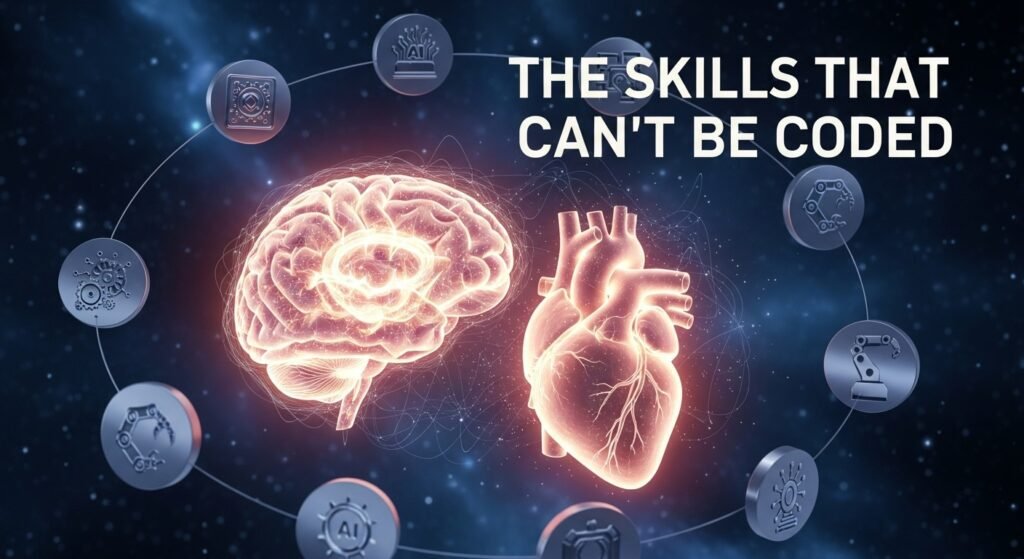
The “Unautomatable” You: The 5 Human-Centric Skills for the Future of Work
While AI can write code, analyze data, and generate reports, it struggles with ambiguity, empathy, and true originality. This is where you shine. Mastering these five “unautomatable” skills will make you an indispensable asset in the future of work.
1. Cognitive Flexibility & Adaptability
What it is: The ability to mentally pivot, unlearn old ways of doing things, and quickly adapt to new information, tools, or changing project goals. Why it’s crucial: The pace of technological and business change is relentless. The hot new software of 2025 could be obsolete by 2027. Your ability to learn and adapt is more valuable than your mastery of any single tool. How to develop it:
- Embrace Discomfort: Intentionally take a class or work on a project completely outside your major. If you’re a business major, take a coding bootcamp. If you’re a computer science major, take a philosophy class.
- Practice the “Beginner’s Mindset”: Approach new subjects with humility and curiosity. Acknowledge that you don’t have all the answers and focus on asking good questions.
- Seek Feedback: Actively ask for constructive criticism on your projects and be willing to completely rethink your approach based on that feedback.
4 Characteristics of Warm Demander Teachers | Balancing Care & High Expectations
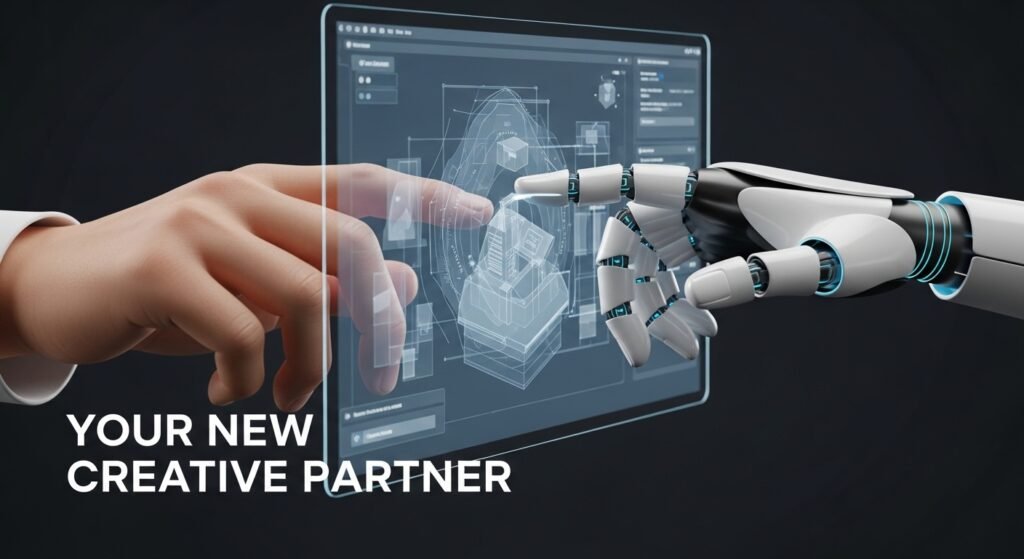
2. AI Fluency & Collaboration
What it is: Not the ability to build AI, but the ability to use AI as a creative partner and productivity tool. It’s knowing which tool to use for which task and how to write effective prompts to get the best results. Why it’s crucial: In 2025, knowing how to use AI is like knowing how to use a web browser in 2005. It’s a fundamental digital literacy skill. Employers expect you to leverage AI to be faster, more creative, and more efficient. How to develop it:
- Use it, Don’t Abuse It: Integrate generative AI tools into your schoolwork. Use them to brainstorm essay topics, debug your code, summarize research papers, or create initial drafts.
- Document Your Process: In your portfolio, don’t just show the final project. Show your process. “I used Midjourney to generate 10 visual concepts, then refined the best one in Photoshop. I used ChatGPT-4 to brainstorm 5 different marketing angles for this project.”
- Take an “AI for Everyone” Course: Platforms like Coursera offer courses that teach the fundamentals of AI and its applications, designed for a non-technical audience.
3. Advanced Communication & Empathy
What it is: The ability to clearly articulate complex ideas, listen actively to understand different perspectives, and build trust and rapport with diverse, often remote, teams. Why it’s crucial: AI can send an email, but it can’t read the room in a tense Zoom meeting. It can generate a report, but it can’t inspire a team or resolve a conflict between colleagues. As work becomes more collaborative and global, these human connection skills are more valuable than ever. How to develop it:
- Lead Something: Join a student club and run for a leadership position. The experience of organizing events, motivating volunteers, and communicating with different stakeholders is invaluable.
- Practice Public Speaking: Join a debate club or a Toastmasters group. The ability to structure an argument and present it with confidence is a timeless skill.
- Take a Psychology or Sociology Class: Understanding what motivates people and how groups function is the secret sauce of great collaboration.
4. Complex Problem-Solving
What it is: The ability to tackle messy, ill-defined problems that don’t have a clear formula or a single right answer. It involves identifying the core question, gathering information from multiple sources, and evaluating potential solutions with a critical eye. Why it’s crucial: AI is fantastic at solving well-defined problems. But in the real world, the problems are rarely neat. Humans are needed to frame the problem, navigate the ambiguity, and make the final strategic judgment call. How to develop it:
- Participate in Case Competitions: These competitions, popular in business and engineering schools, are a perfect training ground for this skill.
- Embrace Project-Based Learning: Seek out classes that require you to build something from scratch—a business plan, a mobile app, a community garden. This forces you to confront and solve a series of real-world problems.
- Question Everything: When you’re given an assignment, don’t just follow the instructions. Ask “why?” Understand the underlying goal. This trains your brain to think strategically, not just tactically.
5. Creativity & Originality
What it is: The ability to generate novel, valuable, and surprising ideas. It’s about connecting disparate concepts to create something new. Why it’s crucial: Generative AI is a master of remixing and re-presenting existing information. It can create a beautiful image in the style of Van Gogh, but it could never be Van Gogh. True originality—the spark of a genuinely new idea—remains a profoundly human trait. How to develop it:
- Cultivate a Creative Hobby: Whether it’s painting, writing music, or creative coding, having an outlet where you are forced to create something from nothing is essential exercise for your creative muscles.
- Read Widely: Read outside your discipline. If you’re a science major, read poetry. If you’re a humanities major, read about breakthroughs in technology. Original ideas often come from the intersection of different fields.
- Learn about Design Thinking: This is a structured process for creative problem-solving that is highly valued in many industries.
Top Mental Health Resources for College Students
A Story from the Hiring Desk
As a hiring manager in today’s market, my perspective has completely shifted. Last month, I was hiring for a “Marketing Analyst” role. I had two final candidates. One had a perfect marketing degree and knew every analytics tool inside and out. The other was a history major.
On paper, the choice seemed obvious. But in the interview, the marketing grad gave me textbook answers. When I asked how they would approach a complex, undefined market entry problem, they froze. The history grad, however, lit up. They talked about how they used AI tools to analyze vast archives of historical newspapers to identify long-term consumer trends. They had led a cross-disciplinary university project that involved art, history, and business students. They didn’t know our specific marketing software, but I was 100% confident they could learn it in a week.
I hired the history major. Why? Because they didn’t just have knowledge; they had demonstrated cognitive flexibility, AI fluency, and complex problem-solving skills. That’s the future of work.
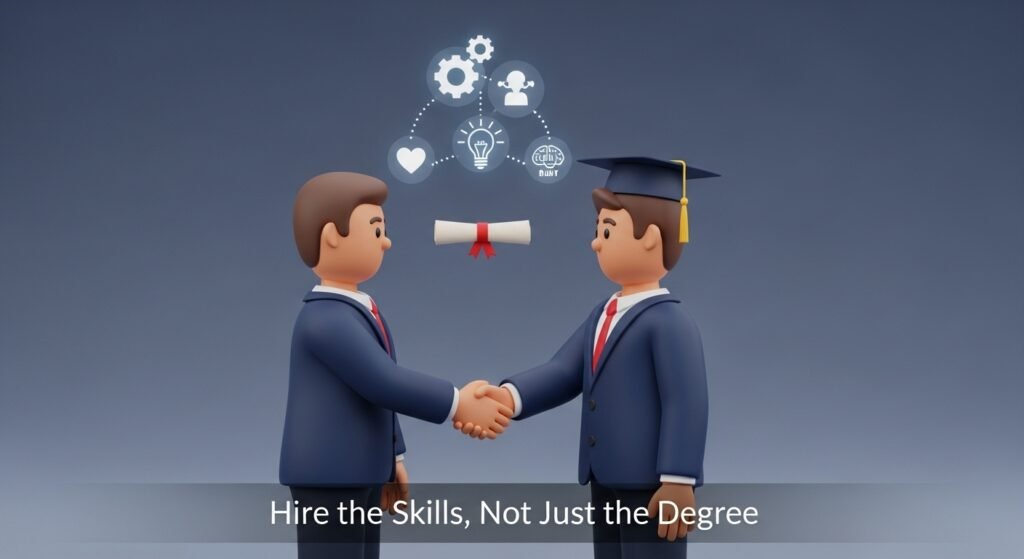
Conclusion: You Are the Killer App
The future of work is not a story of humans being replaced by machines. It’s the story of humans being amplified by machines. The most successful, sought-after, and future-proof professionals of 2025 and beyond will be those who cultivate their uniquely human skills. Don’t be afraid of AI; learn to dance with it. Focus on building your adaptability, your empathy, your creativity, and your critical thinking. These are the skills that have always been valuable, and in an age of intelligent machines, they have become our greatest advantage.
Which of these “unautomatable” skills do you think is your strongest, and which one will you start developing this month? Share your thoughts in the comments below!

